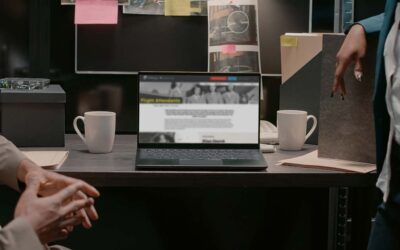Strategies to Effectively Work with Museum Staff, Interns, and Volunteers

Rachael Cristine Woody
Effectively working in teams requires an established communication pattern, a unified training experience and instructions, and respect.
Working in teams that involve a hybrid of staff, interns, and volunteers increases the level of difficulty in achieving effectiveness, but not enough to negate the validity of the approach.
Challenges
The challenges with this type of hybrid team are:
- Interns and volunteers aren’t at the museum M-F, 40-hours a week. Their time is syncopated and finite.
- Interns and volunteers don’t necessarily come with the education or experience needed for some aspects of the digital project.
- As interns and volunteers aren’t employed by the museum, their commitment to the project may fluctuate.
Benefits
The hybrid team is not without its benefits. Some benefits are:
- A more diverse pool of knowledge and experiences.
- The ability to increase capacity otherwise impossible without the interns and volunteers.
- Offers an enrichment experience for all team members.
Strategies
So, how do we navigate the challenges of a hybrid team within the context of museum digital projects? The following three elements are required:
- An established communication pattern;
- A unified training experience and instructions; and
- Respect
Challenge 1: Team member timing is syncopated and finite.
Communication Strategy: A good communication strategy is key. The needs to be a centralized place where communication takes place. This can be a project management dashboard, an internal site (e.g. SharePoint or Google Drive), regularly scheduled virtual or in-person meetings, or even email. All team members should know where they can participate in communications regarding project details, updated timelines, noted issues, and relay other key pieces of information.
Challenge 2: Team members come with different levels of education and training.
Training Strategy: An effective training strategy is one that incorporates learning tools for as many preferred learning modes as possible. This means the inclusion of plain-speaking text, visuals, and audio-visual tutorials that are provided at the beginning of the project and can be referenced regularly by all team members. The training should also be a unified experience—meaning that all team members should go through it to ensure everyone is up to speed with how the digital project is to be executed.
Challenge 3: Team members not employed by the museum may fluctuate in their commitment.
Respect Strategy: Respect is a strategy that should be applied in any environment, and especially in situations where not everyone is being compensated for their work. In a hybrid team environment, the employed staff members and supervisors of the project need to audibly express gratitude for the team members’ work on a regular basis, and approach every interaction with showing these team members collegial respect. Afterall, you wouldn’t be able to do this project without them. Finally, when we know we’re valued and respected by our team, we tend to want to show up for them and our commitment is deepened.
Conclusion
As you can see, these strategies—communication, training, and respect—are elements that transcend any project type. However, they are even more important when working with a hybrid team on a fairly complex project that requires both educational and technical competencies. I encourage you to incorporate these strategies within all of your teams as you’ll find both the projects and the people will benefit from them.
Additional Reading
5 Steps to Museum Volunteer Project Success
Effective Technology Training for Museum Volunteers & Interns
How to Best Leverage Museum Volunteers
Webinar: How to Attract and Train the Best Volunteers
And, of course, don’t forget to check out Lucidea’s webinar suite for more on digital projects.

Rachael Cristine Woody
If you’d like to learn more about this topic, there’s still time to register here for Rachael’s webinar, “Museum Digital Projects: Strategies for Working with Staff, Volunteers, or Interns” today, July 27, 2022. Rachael Cristine Woody advises on museum strategies, digital museums, collections management, and grant writing for a wide variety of clients. In addition to several titles published by Lucidea Press, she is a regular contributor to the Think Clearly blog and an always popular presenter
Never miss another post. Subscribe today!
Similar Posts
An Introduction to Scrollytelling for Museums
Discover how museums use scrollytelling and digital storytelling platforms to create immersive narratives. This introduction explores key concepts and approaches to interactive storytelling.
Exploring Self-Determinate Multiple Pathways: An Example of Digital Storytelling
Discover how self-determinate multiple pathways offer flexible interactive storytelling in museum exhibits. Learn from the Tenement Museum’s ‘Your Story Our Story.’
Digital Museum Storytelling Example: A Look at Self-Determinate Linear Pathways
Self-determinate characteristics on a linear pathway go beyond brief sidebar topics and instead offer alternative ways to navigate the linear pathway.
Digital Storytelling in Museums: The Prescriptive Linear Pathway in Action
Rachael Woody emphasizes that storytelling is key to engaging audiences with collections. One effective approach? The prescriptive linear pathway—a simple yet powerful method for guiding visitors through digital exhibits.






Leave a Comment
Comments are reviewed and must adhere to our comments policy.
0 Comments